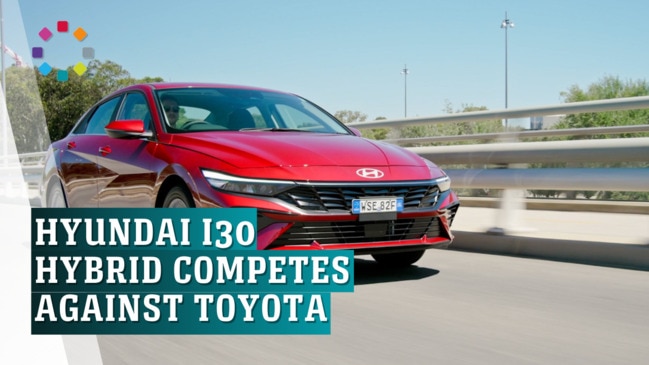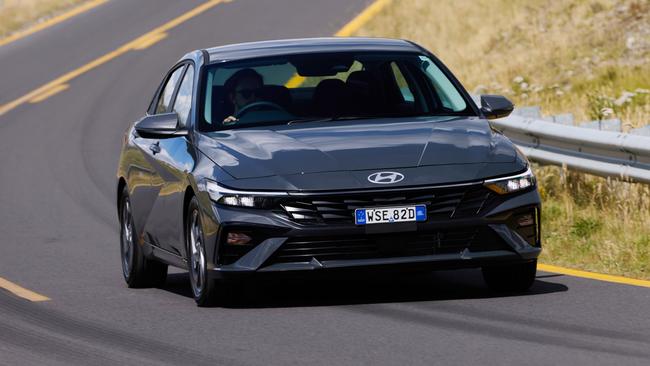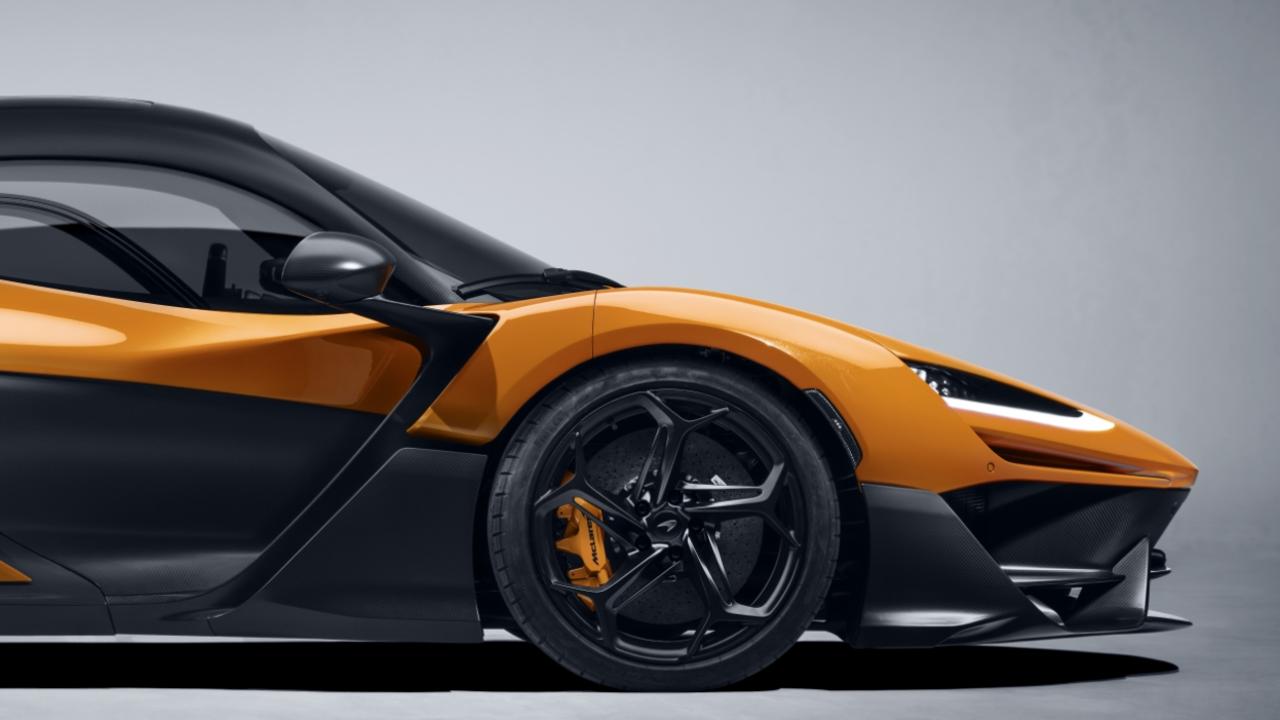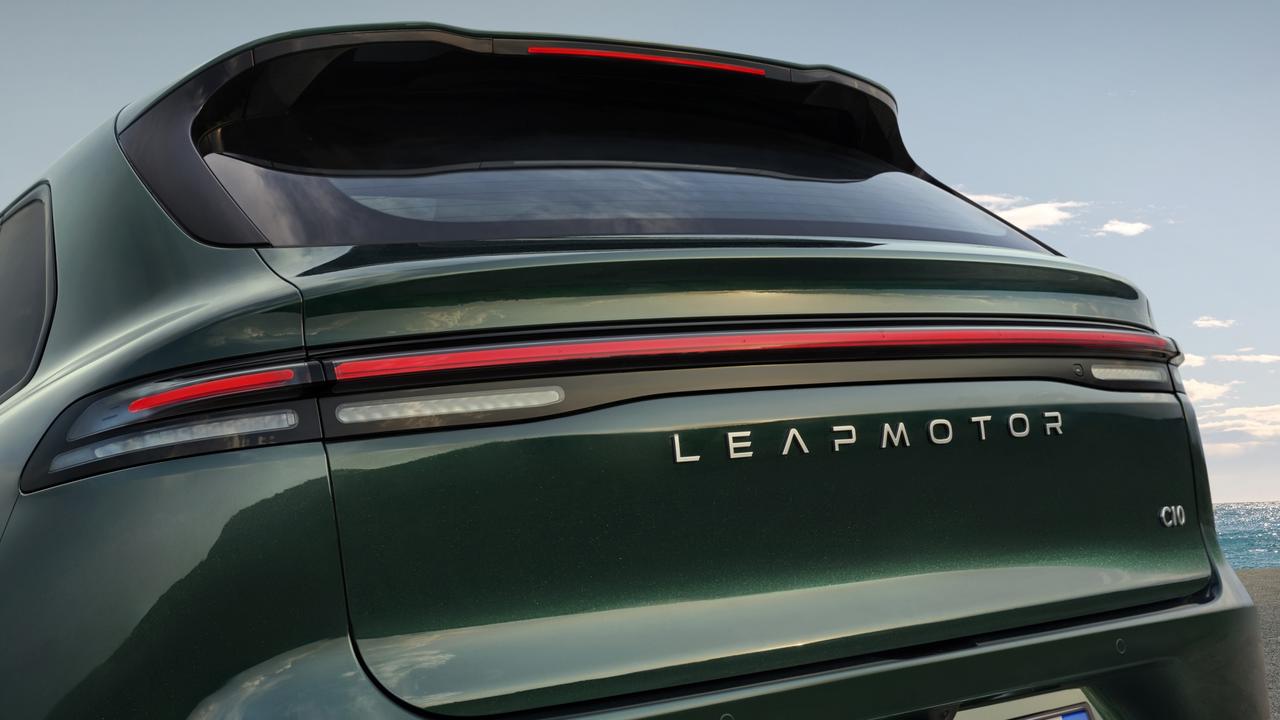2024 Hyundai i30 Sedan Hybrid new car review
A fuel sipping hybrid car from one of the world’s biggest auto makers has landed in Australia and will save you big bucks at the bowser.

Hyundai’s first hybrid i30 has arrived with budget-pleasing fuel economy and Toyota’s dominant Corolla in its sights.
The brand’s ever-popular small car boasts miserly – and perfectly achievable – fuel consumption of just 3.9L/100km and ticks the affordable box with a $35,990 drive-away price.
It’s also a damn good car. Smooth, quiet and easy to live with in town, it has enough shove and composure to keep keener drivers interested on country roads.
A spacious rear seat makes it reasonably family friendly, while its on-road price undercuts Toyota’s Corolla hybrid in most states. Its edgy extrovert styling shades the blander Toyota’s, while the cabin looks smarter and is better equipped.

It also uses a more enjoyable dual-clutch auto transmission, rather than the Toyota’s fun-sapping CVT.
Home run, Hyundai? Not quite. The i30 hybrid’s only available as a four-door sedan, not the more popular hatchback (which is built in a different factory). The Corolla hybrid’s available in both body styles.
The lack of an ANCAP safety rating is another black mark next to the Corolla’s five stars (although the Toyota’s result is six years old), and the entry-level i30 hybrid misses very useful safety kit such as blind-spot warning and rear cross-traffic alert. The i30’s economy figure, while impressive, matches rather than betters the ageing Toyota’s.

Hyundai’s nailed the silky-smooth hybrid drive experience that’s made the Corolla so popular. The i30 sedan starts in silence, using a small 1.32kWh battery that powers a 32kW electric motor turning the front wheels. Go lightly on the throttle and it’ll ease into traffic at up to 50km/h before the 1.6-litre petrol engine needs to be woken from its slumber. When it does so, you barely notice.
For the urban crawl it can work for short periods in full electric mode, drinking no petrol and releasing zero emissions. As with an EV, it scoots along in responsive silence, recharging its battery when you brake, lift off the throttle or go downhill. No plugging in is required.
Over 200 kilometres of urban streets, highway and twisty backroads our return was 4.3L/100km. We were never deliberately light on the throttle, so the official sub-4L/100km figure is achievable, especially in town where hybrids perform best.

Tyre noise aside it proved tranquil at 110km/h and on mountain roads outside Albury the i30 showcased the delightful balance and handling Hyundai does so well in everyday small cars. This hybrid’s more tuneable independent rear suspension helps it shine.
The electric motor does a neat job filling in torque holes when you demand performance, while the dual-clutch gearbox happily and cleanly flies through cogs. Only when we exhausted the battery on a long uphill run did the rather underpowered petrol engine start wheezing.
Hyundai’s overbearing safety systems detract from the driving pleasure, though. They intervene far too frequently and noisily, prompting you to turn them off.

This is a refreshed-for-2024 model, but the entry level hybrid still needs a key in the ignition, the infotainment is a quite basic 8-inch job and there’s no external button to pop the boot – bewilderingly you must use the key.
There are some hard cabin plastics but it presents well with a leather steering wheel and gear knob, large wireless phone charger, digital driver display and quality-feeling cloth seats. Dual-zone climate control with rear air vents are a win for families and the boot’s a healthy 474 litres. Hybrid batteries are under the rear seat, so there’s no cargo space sacrifice.
The i30 is only available in entry level specification from launch, but better-appointed Elite and Premium grades follow in a few months.

Prices for those models aren’t confirmed but they will bring goodies such as larger alloys, leather heated and ventilated seats, better 10.25-inch infotainment, a surround-view monitor and auto boot. No hybrid N-Line version is coming, which is a shame because it would be a popular model.
A non-hybrid i30 sedan’s offered from $29,000 plus on-roads, but its urban fuel use is roughly triple the hybrid’s. If Toyota’s Corolla sales split is any guide (84 per cent are hybrids), Aussies seeking proper fuel savings will overwhelmingly pick the hybrid.
VERDICT 4/5
Impressive fuel economy and a polished drive makes for a compelling alternative to the Corolla hybrid, provided you don’t want a hatchback.
HYUNDAI i30 SEDAN HYBRID
PRICE: $35,990 drive-away
ENGINE: 1.6-litre four-cylinder petrol hybrid, 104kW/265Nm (combined)
THIRST: 3.9L/100km
WARRANTY/SERVICE: Five years/unlimited km, $2150 over five years
SAFETY: No crash rating, six airbags, auto emergency braking, driver attention warning, speed limit assist, lane-keep assist, radar cruise control
LUGGAGE: 474 litres
SPARE: Space saver (non-hybrid is full-size)
Originally published as 2024 Hyundai i30 Sedan Hybrid new car review


